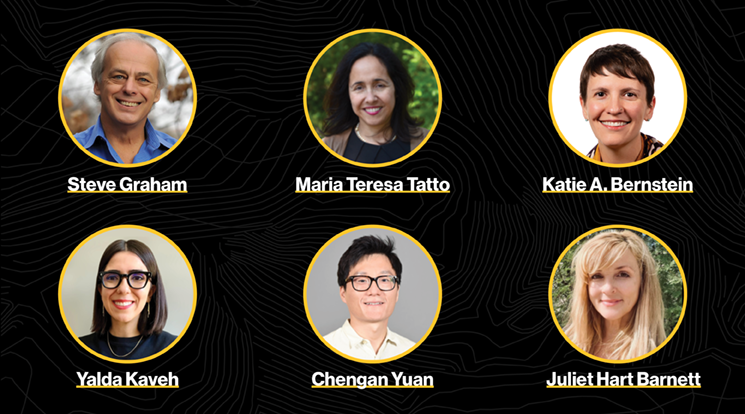Faculty research highlights: February, 2025

The research papers and publications listed below are a sampling of recent contributions by faculty representing Arizona State University’s Mary Lou Fulton College for Teaching and Learning Innovation. Please see research paper links for full authorship credits.
“Can teaching writing enhance students’ writing self-efficacy: A meta-analysis”
Journal of Educational Psychology
Steve Graham, Regents Professor
Based on the premise that writing self-efficacy acts as a catalyst for writing, an engine for engagement and a determinant of the actions and resources writers apply while composing, the authors assert the importance of ensuring that school-aged students view themselves as competent writers. This meta-analysis by Graham, along with Clarence Ng (Australian Catholic University), Michael Hebert (University of California, Irvine), Tanya Santangelo (Arcadia University), Angelique Aitken (Pennsylvania State University), April Camping (SRSD Online) and Adiba Nusrat (Forsyth Technical Community College) demonstrated that writing self-efficacy is malleable and that teachers can provide instruction that helps students become more confident about their writing competence.
“The Perils of Policy Workarounds: Lessons from Arizona’s Return to ‘English-Only’ Policy”
Journal of Language, Identity & Education
Katie A. Bernstein, associate professor; Lindsey Brown, graduate research assistant; Yalda Kaveh, assistant professor; Brandon Yuhas and Sepide Pazhouhi, graduate research assistants
Between 2019 and 2024, Arizona’s Department of Education shifted from strict enforcement of English-only language education requirements to looser restrictions and encouraging dual language approaches, then back to English only. In this forum piece, the authors use approaches from critical discourse analysis to trace the arc of Arizona’s language policy changes. They discuss how benevolent policy arbiters used a policy workaround to loosen restrictions of the English-only policy, only to see the loosening undone after the election of a superintendent of public instruction with the opposite ideology. The essay cautions scholars and policymakers, identifying potential risks of using policy workarounds to promote equity-oriented agendas.
“The Future of Teacher Education and Teacher Professionalism in the Face of Global Policy Trends”
Chapter 8, World Yearbook of Education 2025: The Teaching Profession in a Globalizing World: Governance, Career, Learning (Routledge)
Maria Teresa Tatto, Southwest Borderlands Professor of Comparative Education
This chapter examines global policy trends and their impact on teacher professionalism, including recruitment, status, initial education and careers. Tatto’s thesis is that while pathways to teacher professionalism diverge depending on socioeconomic conditions, cultural traditions and political forces, the evolution of teacher policy in Western countries produced innovations that quickly spread globally, making possible the comparison of education systems across continents. Tatto highlights the evolution of teacher policy in England and the U.S. to illustrate the challenges of policy convergence and divergence in education and discusses the need for further exploration and investigation.
“Developing Quality IEP Goals in the Age of Artificial Intelligence”
Teaching Exceptional Children
Chengan Yuan, assistant professor; Juliet Hart Barnett, professor
Yuan and Barnett’s article was selected for “Artificial Intelligence for IEP Development,” a webinar series hosted by the Center for Innovation, Design and Digital Learning. In their presentation (available here), the authors illustrate how technology is revolutionizing the development of IEP goals, particularly through the use of generative AI tools. They discuss the importance of high-quality, SMART (specific, measurable, achievable, relevant, time-bound) IEP goals to address students’ unique needs, then introduce strategies for using AI to create those goals. Challenges such as safeguarding data, mitigating bias and ensuring meaningful collaboration with families are also addressed, as well as the need for further research to enhance AI's role in special education.
The summaries listed here are reprinted from paper and publisher abstracts. They are a sampling of the many published projects by MLFC faculty.